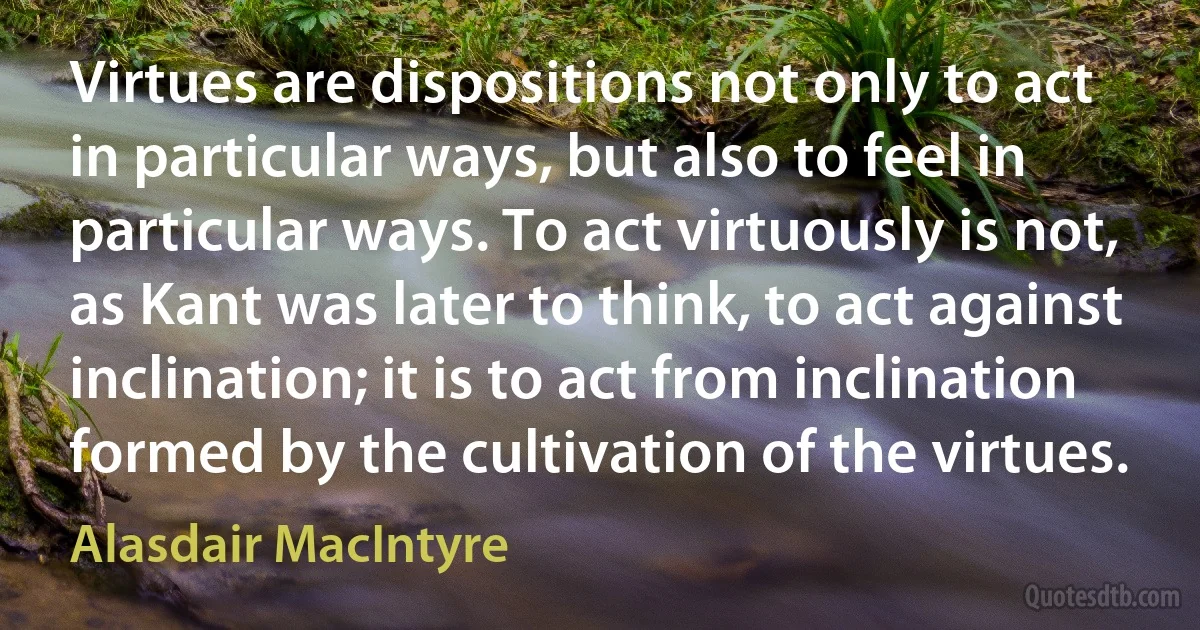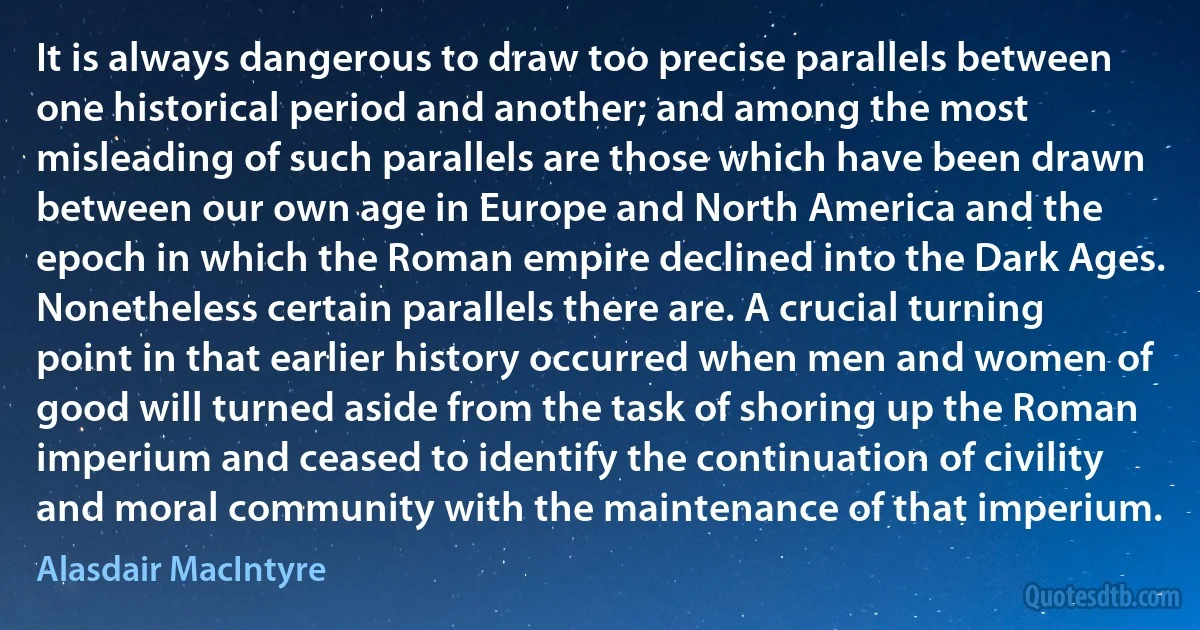Alasdair MacIntyre quotes
Raymond Aron ascribes to Weber the view that 'each man's conscience is irrefutable.' ... while [Weber] holds that an agent may be more or less rational in acting consistently with his values, the choice of any one particular evaluative stance or commitment can be no more rational than any other. All faiths and all evaluations are equally non-rational.

Alasdair MacIntyre
There is no way to understand the character of the taboo rules, except as a survival from some previous more elaborate cultural background. We know also and as a consequence that any theory which makes the taboo rules ... intelligible just as they are without any reference to their history is necessarily a false theory... why should we think about [the theories of] analytic moral philosophers such as Moore, Ross, Prichard, Stevenson, Hare and the rest in any different way? ... Why should we think about our modern use of good, right and obligatory in any different way from that in which we think about late eighteenth-century Polynesian uses of taboo?

Alasdair MacIntyre
What matters at this stage is the construction of local forms of community within which civility and the intellectual and moral life can be sustained through the dark ages which are already upon us. ... This time, however, the barbarians are not waiting beyond the frontiers; they have already been among us for quite some time. And it is our lack of consciousness of this that constitutes part of our predicament. We are waiting not for Godot, but for another-doubtless very different-St. Benedict.

Alasdair MacIntyre
The manager treats ends as given, as outside his scope; his concern is with technique, with effectiveness ... The therapist also treats ends as given, as outside his scope; his concern also is with technique, with effectiveness ... Neither manager nor therapist, in their roles as manager and therapist, do or are able to engage in moral debate. They ... purport to restrict themselves to the realms in which rational agreement in possible-that is, ... to the realm of fact, the realm of means, the realm of measurable effectiveness.

Alasdair MacIntyre
Consider what kind of authority [can be ascribed to] any principle which it open to us to choose to regard as authoritative or not. I may choose for example to observe a regimen of asceticism and fasting ... for reasons of health ... What authority such principles possess derives from the reasons for my choice. Insofar as they are good reasons, the principles have corresponding authority; insofar as they are not, the principles are to that same extent deprived of authority. It would follow that a principle for the choice of which no reasons could be given would be a principle devoid of authority. I might indeed adopt such a principle from whim or caprice or from some arbitrary purpose ... but if I then chose to abandon the principle whenever it suited me, I would be entirely free to do so.

Alasdair MacIntyre
On Kant's view it can never follow from the fact that God commands is to do such-and-such that we ought to do such-and-such. In order for us to reach such a conclusion we would also have to know that we always ought to do what God commands. But this last we could not know unless we ourselves possessed a standard of moral judgment independent of God's commandments by means of which we could judge God's deeds and words and so find the latter morally worthy of obedience. But clearly if we possess such a standard, the commandments of God will be redundant.

Alasdair MacIntyre
According to Aristotle then excellence of character and intelligence cannot be separated. Here Aristotle expresses a view characteristically at odds with that dominant in the modern world. The modern view is expressed at one level in such banalities as ‘Be good, sweet maid, and let who will be clever' and at another in such profundities as Kant's distinction between the good will, the possession of which alone is both necessary and sufficient for moral worth, and what he took to be a quite distinct natural gift, that of knowing how to apply general rules to particular cases, a gift the lack of which is called stupidity. So for Kant one can be both good and stupid; but for Aristotle stupidity of a certain kind precludes goodness.

Alasdair MacIntyre


